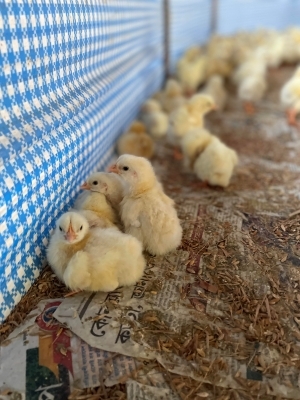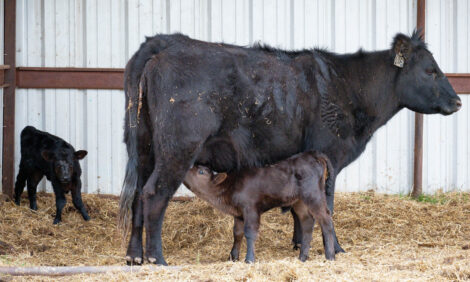



Research on India’s antibiotic regulation identifies framework for policy development in livestock
Research on India’s antibiotic regulation identifies framework for policy development in livestock
Antibiotic resistance has been described as a global challenge for animals and humans alike. If not effectively controlled, it has the potential to cause serious social and economic costs over the next few decades. There is therefore increasing concern about how different antibiotics deemed essential for human health are being used in livestock. Colistin is a critically important human antibiotic, often used as a last-resort treatment for infections including pneumonia, but it has historically also been used to treat livestock around the world.
Therefore, the research team, led by Dr Mat Hennessey, now a post-doctoral researcher in social science at the RVC, in collaboration with the West Bengal University of Animal & Fishery Sciences, the College of Veterinary Science and Animal Husbandry Gujarat, and Veterinary College and Research Institute Tamil Nadu, set out to analyse the factors contributing to the ban of colistin in animal use in India, a country with high levels of antibiotic resistance. The research aimed to inform how other antibiotic use in livestock could potentially be regulated and support a One Health approach, recognising the interlink between animal and human health.
The team undertook a policy review, analysing policy documents, reports, published literature and media articles. They also undertook 19 interviews with veterinarians across five Indian states to gather their views.
The findings identified five key factors which could help inform the development of other antibiotic policies. These are:
- Antibiotic events: The discovery of mobile colistin resistance genes from pigs in China in 2015 kick-started a wave of global policy change to restrict the use of colistin in animals.
- Consistent antibiotic narratives to build support: Colistin has been described as a ‘last resort’ antibiotic for people, meaning that it needs to be held in reserve for treating the most serious drug-resistant infections.
- Building the case for antibiotic policy to be a worthwhile endeavour: At the time the colistin policy was being debated in India, there were low levels of colistin resistance in people, reinforcing the narrative that it needed to be reserved for use in people.
- Antibiotic leaders setting a precedent for change: Numerous countries across the globe had implemented colistin regulation between 2016 and 2019, and India had set out how it wanted to be a global player in the fight against antibiotic resistance.
- Lack of substantial opposition to antibiotic policy: Poultry and pharmaceutical sectors supported the colistin ban. Both of these sectors had potentially a lot of power to oppose such legislation, so it was important that they were on board.
This research shows the importance of having ongoing dialogue between different stakeholders about which antibiotics can and cannot be used in animals, with policy reflecting the most up-to-date scientific information and needs of various populations, both in humans and animals.
However, policies limiting the types of antibiotics used in animals mean that livestock keepers and vets need to think about alternative ways of keeping animals healthy, such as improving husbandry and require a more long-term view to sustainable livestock production.

Overall, the research found that the development of antibiotic policy across human and animal health is a complex process, which takes time and involves numerous people and groups, but highlights how governments are able and willing to take antibiotic resistance seriously. This is encouraging and more work is needed to protect antibiotics for future use.
Dr Mat Hennessey, post-doctoral researcher in social science at the RVC and lead author, said: “Our policy analysis into India’s 2019 ban of colistin use in livestock details the complex steps leading up to this regulation. Despite being a reactive process to key global events, such action is built on a long process in which the policy landscape is primed.
“Given that other antibiotics deemed critically important for human health are still being used in livestock on a large scale, we urge states and stakeholders to consider how to act proactively to develop further meaningful antibiotic policy. The factors we identify in our review provide a useful framework for this much-needed action.”
Haidaruliman Paleja, co-author at the College of Veterinary Science and Animal Husbandry, Kamdhenu University, Anand, India, said: “A ban on colistin in livestock production is a crucial move to combat the rising threat of antimicrobial resistance and promote healthier populations of both animals and humans. However, putting this policy into practice presents several challenges, ranging from economic and social concerns to technical obstacles.”
This research was supported by the One Health Poultry Hub, led by the RVC, and the OASIS project (One Health Antibiotic Stewardship in Society) led by the London School of Hygiene and Tropical Medicine.


